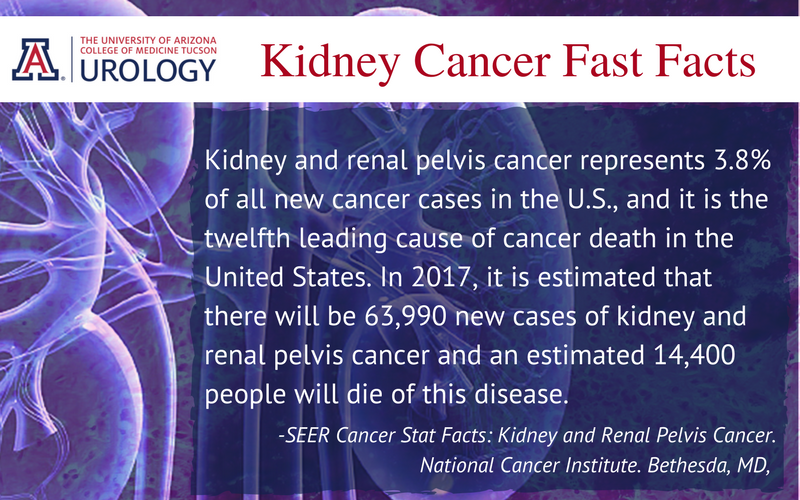The kidney is a bean-shaped organ located toward the back of the body, beneath the rib cage. A person is usually born with two kidneys, located on either side of the spine. The primary functions of the kidneys are to act as filters to cleanse the blood of waste products and to make hormones that support blood pressure and blood cell production.
Kidney cancer is an abnormal growth of the cells in the kidney, but not all masses in the kidney are cancer, with about 20 percent representing other abnormal but non-cancerous growths.
Cancer develops when normal cells start to grow rapidly and without control. As a result, the cancer cells lump together and form a mass, known as a tumor (or a cancer or a lesion).
Once a cancer forms, it can continue to grow and possibly spread (metastasize) beyond the area where it began. Metastatic spread is what makes cancer a deadly disease. Treatment is usually focused on stopping a cancer before it can spread.
Why Us?
Our urologists are leaders in the evaluation and treatment of kidney cancer with years of experience and specialized fellowship training
We are experts in performing the most complex kidney cancer surgeries using robotic, laparoscopic, and open approaches
We are a high-volume kidney cancer referral center where patients benefit from very experienced urologists
Our doctors will take the time to ensure that you are fully informed about your options for treatment
Our faculty are active in kidney cancer research, ensuring that you receive the latest state-of-the-art care available
Treatment Options
Options for treatment depend on the size and location of a potential kidney cancer. Health of a patient and the presence of other medical conditions are also considerations.
Partial Nephrectomy
In partial nephrectomy, kidney cancer is completely removed without removing the entire kidney. This operation provides the same chances for cure as taking out the entire kidney but preserves kidney function. Partial nephrectomy can be performed using minimally invasive robotic surgery or through open surgery.
Radical Nephrectomy
When a kidney mass is too large to be treated with a partial surgery or when there is involvement of important blood vessels, radical nephrectomy may be the preferred option. In this surgery, the entire kidney is removed to completely eradicate cancer. This surgery is performed through minimally invasive laparoscopic surgery or through open surgery.
Active Surveillance
Some kidney cancers grow very slowly and may take years and years before they ever harm a person. Thus, for smaller kidney masses and for patients with significant other medical conditions, active surveillance is sometimes used.
In this approach, a kidney mass is carefully monitored to ensure it does not quickly increase in size. Surveillance may allow some patients to avoid surgery entirely. However, if a tumor does grow rapidly, surgery is sometimes then considered.
Ablation
Ablation involves either freezing (cryotherapy) or heating (radiofrequency ablation) of kidney cancer in order to kill cancer cells during a minimally invasive operation or procedure. Ablation is appropriate for smaller masses and in situations where patients have medical conditions that may make partial nephrectomy too risky.


